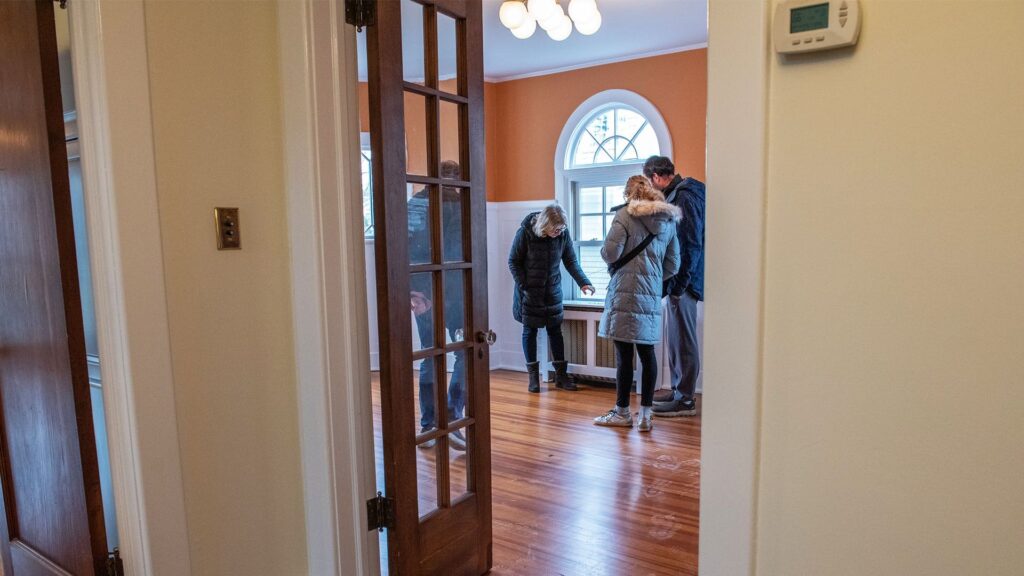
Tiffany Hagler-Geard/Bloomberg via Getty Images
As home values rise, owners tend to feel good about their growing equity. But there is a downside to home equity, according to recent research: The more equity homeowners have when they sell, the more they tend to overpay when they buy their next home.
A study on housing wealth and overpayment found that on a $400,000 home purchase, buyers with equity from the sale of their previous home tended to overpay on average by about $8,000, or 2%. For every dollar of equity gain that a seller receives, he or she overpays by 7.9 cents on the next home purchase, says study co-author Gregor Schubert, an economist at the UCLA Anderson School of Management. Thus, higher-equity sales tend to mean bigger overpayments on the new home.
The study identified two main theories to explain this phenomenon. One, with higher equity comes lower capital constraints. So, these buyers can consider a larger set of houses, leading them to potentially find a better match that they are willing to pay more for. Also, an equity-fueled buyer is able to offer more, and sometimes does, to avoid a labor-intensive search for specific information about the new home’s value, or to scare off other buyers. In both cases, this can result in driving offers higher than they need to be.
To arrive at their conclusions, the researchers studied data from Zillow covering 25 years, from 1996 to 2021. The average household lived in a property for 6.6 years before selling and realized an average equity gain of $86,244, which translated into a $6,899 overpayment on the next home. To determine when buyers overpaid and by how much, researchers analyzed housing-price trends in the neighborhood of the new home and any unique attributes of the house.
The researchers found that overpayment becomes more likely when it is difficult for the buyers to determine what a particular home should cost; for example, when a home is distinct from others in the neighborhood, or where the easily observed data points such as age or number of bedrooms are less defining of the home’s overall value. The researchers say they were able to determine that there were overpayments in such cases in part by monitoring future sales to see if the inflated purchase price resulted in lasting higher value.
The effect of overpaying for individual homes has neighborhoodwide implications and contributes to escalating housing costs nationwide, says Schubert. For every dollar of equity gain a seller realizes on his or her home sale, average housing prices in nearby neighborhoods increase 8.9 cents over the next six months, according to the study. “When more buyers with large proceeds from sales in other markets start looking for housing in a particular city, this tends to accelerate house-price growth in the targeted areas,” he says.
Schubert advises buyers who don’t want to overpay to be aware that having money but little patience for a comparative home-shopping process will likely mean they’ll pay too much for their next home. And in hot markets, where prices are rising fast, buyers should consider waiting until high-equity-gain buyers are less likely to be impatiently bidding up prices.
“If you are trying to close quickly,” says Schubert, “and you made enough money on your old home that you can afford it, a higher bid can perhaps deliver that outcome—but it comes at the price of then being less likely to resell the house at a high profit.”
It is common for buyers who don’t need a mortgage to negotiate discounts with home-sellers who want the sale to go through fast and smoothly. One study cited found an 11% discount for all-cash deals over those with mortgages. But Schubert and his co-authors found that all-cash buyers with equity are losing out on their advantage. “They get a net discount for cash and then the discount is reduced” by the high-equity overpayment, he says.
The post You Made a Nice Profit Selling Your House? Beware What Happens Next appeared first on Real Estate News & Insights | realtor.com®.
